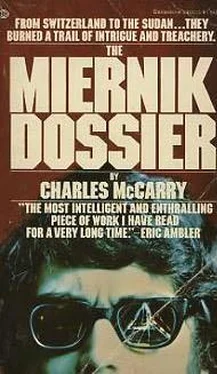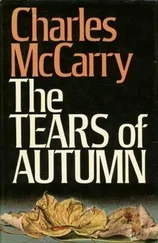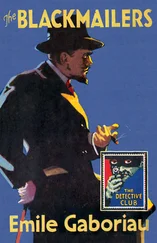The Cadillac is not designed for this kind of travel. It overheated several times and twice got stuck in the sand when the wheels slid off the harder surface of the dirt road. It is obvious that we are going to have to have a second vehicle, a Land Rover or a Jeep, if we are going to make it to El Fasher. Kalash agrees and tells us that we’ll have no trouble buying what we need in Port Sudan. If we live, we’ll arrive there tomorrow morning. I’ve no doubt that Kalash can accomplish anything in Sudan. When we arrived at the frontier, he stopped the car, spoke one sentence in Arabic, received a smart salute from the guard, and drove right on through. “Now, Miernik, you can stop worrying about clerks and passports,” Kalash said. “In Sudan, my name is your passport.”
We camped last night by the sea on a cliff a few miles above the town of Dunqunab. Kalash chose the spot carefully. It is, he says, exactly opposite Mecca across the Red Sea. He prayed for quite a long time at sunset and sunrise, facing in the holy direction, while the rest of us shuffled around in embarrassment. There is something incongruous about Kalash, of all people, prostrating himself and banging his head on the ground. But his religiousness is obviously genuine, while it lasts. As soon as he says his final “amen” and slaps the dirt off his robes he is the Kalash we have always known and loved: bitter tongue, sardonic eye, stiff pecker. “I have gone forty-eight full hours without a woman,” he told me tonight as he turned away from Mecca; “we really must do something about this monastic arrangement of tents.” Kalash has only one tone of voice: distinct. His words were clearly audible to the girls; Ilona flashed a joyful smile at Zofia. It was not returned.
While the girls made supper, Kalash and Collins opened the secret compartment of the Cadillac and extracted an armload of weapons: three Sten guns and a couple of German automatics. The two of them bought these firearms in Cairo. Kalash thinks we may need them when we get into bandit country. While Kalash and Collins sat at the camp table, loading clips from a pile of cartridges, Miernik pulled me aside. “Paul, you must protest! We must get rid of these guns. We were not consulted about this at all. It’s dangerous merely to carry these things! Suppose we are stopped by the police?” I told him I didn’t think the Sudanese police would present much of a problem to Kalash. Moreover, if there were bandits along the route, we’d need something to scare them off with. “Bandits? Bandits? Nigel spoke of bandits, but I thought it was a joke,” said Miernik. “I cannot take Zofia where there are bandits.” He was in a state of great agitation, and even now, when I have all but concluded that he is straight from the KGB, I feel a little sorry for him. Even if he’s acting all the time, letting his emotions crawl all over the surface of his skin must be bad for his nerves. Dealing with him is certainly bad for mine.
Finally he consented to shoot at a target with the rest of us. Collins turned out to be competent with the submachine gun and the pistol: he shoots fast, without sighting, a pretty certain sign that he’s had training. Kalash is not too bad for an amateur. I shot as awkwardly as I could, still building cover. (Collins grinned at me, absolutely sure that I was faking it.) Collins had been goading Miernik all through the shooting, apologizing for the noise, telling him to stand well back, warning him about shooting himself in the foot. By the time Miernik’s turn came, he was angry. His lips were set, his eyes were turned aside, and he looked (as he usually does when he is disturbed) as if the sweat was ready to burst through the pores of his face. He took the Sten gun out of Kalash’s hand, slapped a clip into the receiver, and stepped up to the mark. He was as steady as a rock and the picture of perfect shooting technique. Every round in the bull’s-eye with the Sten. Every round in the bull’s-eye with the pistol. He stared at Collins contemptuously, tossed him the empty Walther, and stalked away.
It was a remarkable display of shooting. And a remarkable breakdown in self-control. “Well,” said Collins. “Isn’t that interesting?” Kalash took off his sunglasses and watched Miernik’s thick figure tramping up the little hill that separated us from the camp. “If I were you, Nigel,” he said, “I’d be very careful about creeping into Ilona’s bed while that Communist is about.”
We have been eating well out of the cans. Ilona is an inventive cook and a very efficient one, a circumstance that gives me one more opportunity to mention that appearances can be deceiving. Zofia, who shines with domesticity, exhausted her kitchen lore when she made tea in the Czech farmhouse and sliced all that bread and cheese and salami for Kirnov and me: she cannot open an egg without breaking the yolk. Whereas Ilona, whom the Marquis de Sade would have picked out of the crowd across a football stadium (if Ilona didn’t spot him first), is a treasure. “I like to wife about,” Ilona will say, stirring up a sauce béchamel over the camp stove, or sewing on buttons for Miernik. She complains, as we all do, that Kalash will allow us no wine. “How can I make sauces without Chablis?” Ilona demands.
“I won’t have you ruining the desert with your filthy Christian ways,” says Kalash. “Once your liver is cleaned out, your disposition will improve, Ilona. You’ve always been a most agreeable girl, but your thoughts are muddy. You stumble in your speech. Wine, my dear, wine is what does it.”
After dinner, while Ilona sat on the ground, scratching Kalash’s feet (his father, the Amir, has a concubine who is the most accomplished foot-scratcher in Islam), Miernik got out a notebook and interviewed Kalash about his ancestry. What was his exact relationship to the Prophet? “One doesn’t go about reciting these pedigrees, Miernik. Put away your pen and enjoy the evening.” Miernik persisted. “Very well,” said Kalash. “I am of the sons of Mohammed and his wife Kadija, who was the Prophet’s first convert, and who died after the Prophet was besieged in Mecca.”
Miernik was impressed. “I had no idea,” he said, scribbling on his pad. “Well,” Kalash said, “no one else has, either. The family has scrolls with the genealogy all marked down. But is it true? What is true at the point where the Holy Koran leaves off? The Khatar family always had a lot of weak blood, younger sons who didn’t like to lop off heads and testicles as the line of the elder sons to which I belong always enjoyed doing. They sat about in our mountain strongholds, watering the family tree. Not exactly objective scholarship, but good enough for my ancestors. From what the Koran says I think the Prophet must have been a good deal like my father-a big strong fellow who knew how to enjoy this world while waiting for the ineffable pleasures of the next. He started the custom of using the sword on those who were reluctant to believe in the heaven of Islam. Showed the beggars how wrong they’d been. Before their heads had rolled to a stop they found themselves in outer darkness, regretting they hadn’t listened to one of my forebears. My family have always been enthusiastic missionaries. I learned how to handle a sword before I could talk. Very important skill in a world teeming with infidels. Can you handle a sword, Miernik?”
A full moon was shining. The air over the desert was so clear that you could see the lunar craters and mountains and seas with the naked eye. Zofia and I went for a walk; the sea was not far away and I thought she’d enjoy a stroll along the beach. (She had never seen salt water until we got to Naples.) About a hundred yards from the camp I heard running footsteps behind us: Miernik. He handed me a loaded pistol. “What is that for?” I asked. “Better to have it and not need it than the other way around,” Miernik said. Zofia giggled. I took the clip out of the gun, putting the ammunition in one jacket pocket and the weapon in the other.
Читать дальше












